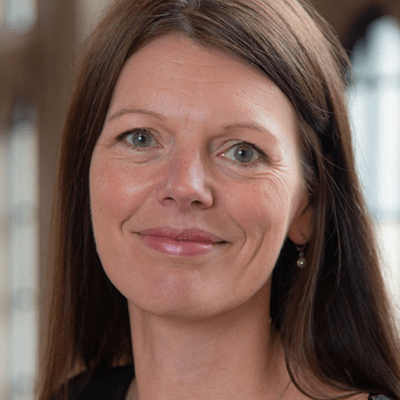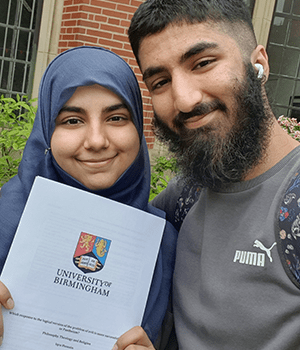Young carers looking to pursue a university education face unique challenges as they balance caregiving responsibilities with their studies.
A UK study revealed that young carers are on average 38% less likely to obtain a university degree than their counterparts with no caring responsibilities (Carers Trust, ‘Protect young carers’ education’). To help bridge that gap, the University of Birmingham developed the Young Carer Award, with funding and bespoke support available to young carers.
There are practical and logistical things we can do but, when it comes to the crunch, students just need to know that the University has got your back so you can focus on what matters.
Since the Young Carers Award was created in 2015, we have been able to support 44 students to succeed, giving them the reassurance and confidence needed to achieve their ambitions and thrive at university and beyond.
Each scholarship provides £2,000 each academic year to assist young carers in paying for living expenses while studying at the University, and to cover various additional costs that come about due to their caregiving responsibilities.
 Most importantly, the award offers specialist support, with young carers given a named contact to turn to if they’re struggling with any aspect of their studies.
Most importantly, the award offers specialist support, with young carers given a named contact to turn to if they’re struggling with any aspect of their studies.
Professor Deborah Longworth, Pro-Vice-Chancellor for Education, says: ‘It’s all about providing clarity on the process and lines of communication, so students don’t have to worry about what to do should something come up, like an unexpected medical appointment. It should be as simple as letting us know so we can get the required support in place.’
Having the whole university experience
A university education is about more than the transfer of knowledge. It will enrich you, provide life skills, give you confidence, and widen your horizons. We absolutely don’t want students to be restricted from those opportunities because they are caring for someone.
As of 2024, recipients of the award are also included in the Birmingham Scholars programme – a scheme for Pathways to Birmingham students that provides careers support, workshops, personal tutor meetings and travel abroad opportunities.
As Deborah explains, the evolution of the award reflects a wider trend in higher education: ‘I think the recognition of what students are doing outside of study has grown immensely. We see it in how we develop our teaching calendar each year, how we shape our social spaces on campus, and in how student societies work to be inclusive by having lunchtime social events as well as evening activities.
‘That’s all so important because people want to feel that they’re able to participate in the whole university experience.’
 22-year-old Iqra received a Young Carer Award. She says: ‘I’m always cramming my studies into little pockets of time during the day. When I get home from university, I have to cook, do the chores or help Mum, who has a physical degenerative disease. It’s usually late nights, or really early mornings.
22-year-old Iqra received a Young Carer Award. She says: ‘I’m always cramming my studies into little pockets of time during the day. When I get home from university, I have to cook, do the chores or help Mum, who has a physical degenerative disease. It’s usually late nights, or really early mornings.